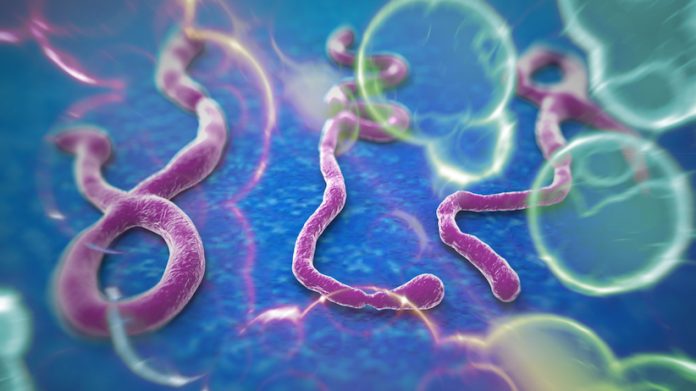
Scientists on Thursday announced a milestone in the fight against Ebola, reporting that a major trial of an experimental vaccine shows that it may be “highly protective” against the virus, which has infected nearly 30,000 people and killed 11,000 worldwide since 2013.
Although the current outbreak has been contained, health officials fear the deadly pathogen could come back and have been racing to develop new ways to stop it should that scenario unfold.
The new study, led by the World Health Organization, was based in a coastal region of Guinea known as Basse-Guinee. The vaccine showed 100 percent efficacy in protecting those who got it. More than 11,800 people participated in the trial.
“While these compelling results come too late for those who lost their lives during West Africa’s Ebola epidemic, they show that when the next Ebola outbreak hits, we will not be defenseless,” Marie-Paule Kieny, the study’s lead author and WHO assistant director general for health systems, said in announcing the results.
When preliminary findings were unveiled in July 2015, WHO Director General Margaret Chan called the vaccine a potential “game-changer.”
Guinea was one of three West African nations hit hardest by Ebola beginning in 2014. Researchers are running two parallel studies of the same vaccine in Sierra Leone and Liberia, the other epicenter countries.
The vaccine used in the study, known as rVSV-ZEBOV and licensed by Merck, involves just a single shot. Both the U.S. Food and Drug Administration and the European Medicines Agency have designated it for streamlined regulatory approval. A number of other vaccines – developed by GlaxoSmithKline and the Beijing Institute of Biotechnology, among other groups – also have shown promise and are advancing in human trials.
The Guinea trial, described in the Lancet, used an approach known as “ring vaccination,” which the researchers described as the same approach used to eradicate smallpox. It involves tracing all individuals who may have been in contact with every new person diagnosed with the virus, from relatives who live in the same household to visitors and those who may have been in close contact with the infected person’s clothes or linens. In some cases, contacts of contacts also were considered to be at risk.
Ultimately, researchers identified 117 “rings,” or clusters of people, for the study. Each was made up of an average of 80 people.
At the beginning of the trial, which took place in 2015 when the virus was still actively spreading in the region, the rings were randomly divided into two groups. One was to get the vaccine immediately and the other after a three-week delay. When the first results showed that the vaccine was working, everyone was offered it immediately. Those 18 and older got it initially, then children older than 6.
The results were striking: In the group of 5,837 people who received the vaccine immediately, there were zero Ebola cases. In the other group, which included those who got a delayed vaccination as well as those who were never vaccinated, there were 23 cases.
Kieny and research team members from Guinea’s Health Ministry and other international partners also noted that vaccination appeared to create a type of “herd immunity” that indirectly protected people who had not been vaccinated. But more research will be needed to confirm this theory, they said.
Two serious adverse events were reported after vaccination, with one participant spiking a fever and another suffering an allergic reaction. Everyone else either reported no side effects or very mild ones such as headache, fatigue and muscle pain. No effects were long term.
Despite researchers’ caution that more studies are needed to confirm the vaccine’s safety for children and other vulnerable groups, such as individuals with HIV, they already are making plans to accelerate its rollout should future trials further confirm safety and effectiveness. Merck has committed to having 300,000 emergency doses available soon and to submit the licensing application to regulatory authorities by the end of 2017.
In a commentary piece – optimistically titled “First Ebola virus vaccine to protect human beings?” – virologist Thomas Geisbert of the University of Texas wrote that the study data were so strong that it seemed likely that the vaccine “probably contributed to controlling the 2013-16 outbreak of Ebola virus disease in Guinea.”
As encouraged as he seemed by the study, Geisbert also raised a number of questions. Researchers still don’t know whether the vaccine is long-lasting, he said, asking, “Is it still protective, for example, 2-3 years after the vaccination?” He also noted that safety questions came up in the early testing.
Still, he wrote, “After 40 years we appear to now have an effective vaccine for Ebola virus disease to build upon.”
(c) 2016, The Washington Post · Ariana Eunjung Cha

